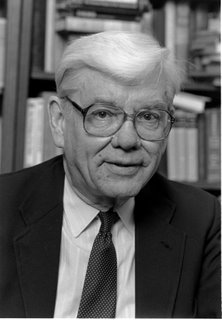Quotations from "All The King's Men""How life is strange and changeful, and the crystal is in the steel at the point of fracture, and the toad bears a jewel in its forehead, and the meaning of moments passes like the breeze that scarcely ruffles the leaf of the willow." p.26
"'Wanting don't make a thing true. You don't have to live forever to figure that out.' That was so true I didn't reckon it was worthwhile even to agree with him." p.117
"Maybe the things you want are like cards. you don't want them for themselves, really, though you think you do. You don't want a card because you want the card, but because in a perfectly arbitray system of rules and values and in a special combination of which you already hold a part the card has meaning. But suppose you aren't sitting in the game. Then, even if you do know the rules, a card doesn't mean a thing. They all look alike.. . .for God and Nothing have a lot in common. You look either of Them straight in the eye for a second and the immediate effect on the human constitution is the same." p149-150
"We see a great many things and can remember a great many things, but that is different. We get very few of the true images in our heads of the kind I'm talking about, the kind that become more and more vivid for us as if the passage of the years did not obscure their reality, but, year by year, drew off another veil to expose a meaning which we had only dimly surmised at first. Very probably the last veil will not be removed, for there are not enough years, but the brightness of the image increases and our conviction increases that the brightness is meaning, or the lengend of meaning, and without the image our lives would be nothing except an old piece of film rolled on a spool and thrown into a desk drawer among the unanswered letters." p177
"Man is conceived in sin and born in corruption and he passeth from the stink of the didie to the stench of the shroud." p.235
"Man is prone to evil as the sparks fly upward." p.242
"Some summer bastard in white flannel pants with vowels that clicked like dominoes." p.451
"That is was why I came to lie on a bed in a hotel in Long Beach, CA, on the last coast amid the grandeurs of nature. For that is where you come, after you have crossed oceans and eaten stale biscuits while prisoned forty days and nights in a storm-tossed rat-trap, after you have sweated in the greenery and heard the savage whoop, after you have built cabins and citites and bridged rivers, after you have lain with women and scattered children like millet seed in a high wind, after you have composed resonant documents, made noble speeches, and bathed your arms in blood to the elbows, after you have shaken with malaria in the marshes and in the icy wind across the high plains. That is where you come, to lie alone in a bed in a hotel room in Long Beach, CA. Where I lay, while outside my window a neon sign flickered on and off to the time of my heart, systole and diastole, flushing and flushing again the gray sea mist with a tint like blood. I lay there, having drowned in West, my body having drifted down to lie there in the comforting, subliminal ooze on the sea floor of History." p464-465
"I had not understood then what I think I have now come to understand: that we can keep the past only by having the future, for they are forever tied together." p.467
"For the truth is a terrible thing. You dabble your foot in it and it is nothing. But you walk a little farther and you feel it pull you like an undertow or a whirlpool. First there is the slow pull so steady and gradual you scarcely notice it, then the acceleration, then the dizzy whirl and plunge to blackness. For there is a blackness of truth, too. They say it is a terrible thing to fall into the Grace of God. I am prepared to believe that." p.516
"For either killing or creating may be a crime punishable by death, and the death always comes by the criminal's own hand and every man is a suicide. If a man knew how to live he would never die." p.531
"If anything is certain it is that no story is ever over, for the story which we think is over is only a chapter in a story which will not be over, and it isn't the game that is over, it is just an inning, and that game has a lot more than nine innings. When the game stops it will be called on account of darkness. But it is a long day." p534
"There is nothing women love so much as the drunkard, the hellion, the roarer, the reprobate. They love him because they---women, I mean---are like the bees in Samson's parable in the Bible: they like to build their honeycomb in the carcass of a dead lion....Out of the strong shall come forth sweetness." p.550
"Reality is not a function of the event as event, but of the relationship of that event to past, and future, events. We seem here to have a paradox: that the reality of an event, which is not real in itself, arises from other events which, likewise, in themselve are not real. But this only affirms what we must affirm: that direction is all. And only as we realize this do we live, for our own identity is dependent upon this principle." p.578
"The creation of man whom God in his foreknowledge knew doomed to sin was the awful index of God's omnipotence. For it would have been a thing of trifling and contemptible ease for Perfection to create mere perfection. To do so would, to speak truth, be not creation but extension. Separateness is identity and the only way for God to create, truly create, man was to make him separate from God Himself, and to be separate from God is to be sinful. The creation of evil is therefore the index of God's glory and His power. That had to be so that the creation of good might be the index of man's glory and power. But by God's help. By His help and in His wisdom." p.659
"A man's virtue may be but the defect of his desire, as his crime may be but the function of his virtue." p.660
"Soon now we shall go out of the house and go into the convulsion of the world, out of history into history and the awful responsibility of Time." p.661















